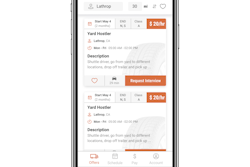California Air Resources Board (CARB) is expected to pass its latest truck emissions restrictions, the Low NOx Heavy-Duty Omnibus Regulations, following a hearing this Thursday, despite outcries from industry critics claiming the set of proposed rules are too costly, illegal and that there’s no evidence that the rules will actually improve air quality.
CARB reports that its latest regulations will provide health benefits in smog-affected areas of the state by slashing nitrogen oxides (NOx) 75% over the next four years, and following the expected action Thursday, opponents will be left with little choice but to challenge the policies in court following what they say were fruitless attempts at negotiation. Such opponents include the American Trucking Associations, the Truck and Engine Manufacturers Association and the Truck Dealers Alliance of California, among a long list of others.
As currently written, starting in 2024, CARB’s Omnibus Regulations will require heavy-duty diesel and gasoline engines sold in California to emit no more than .05 grams of NOx per brake horsepower hour (g/BHP-hr.), a 75% drop from the current limit of .20 grams.
However, NOx reduction is only part of the picture. In comments recently submitted to CARB, the Truck and Engine Manufacturers Association (EMA, the ‘T’ is omitted in the acronym) reports that the board’s legislative ambitions have “expanded considerably” and go “well beyond” its original 2027 goal of reducing NOx by 90%.
As part of its 342-page response to CARB, EMA writes: “The proposed ‘Omnibus Regulations’ now also include a 50% reduction in the HDOH (heavy-duty on-highway) PM (particulate matter) standard, a new ‘Low-Load’ test-cycle and certification standard, a new in-use testing protocol with very significant modifications to the manufacturer-run in-use testing program, a new idleNOx standard and associated in-use test procedure, greatly extended ‘full useful life’ and emissions warranty periods, a far more costly set of deterioration factor testing requirements (with multi-year impacts on product-development timelines), a ‘California-only’ credit ‘averaging banking and trading’ (AB&T) program, and stricter recall and extended warranty liabilities associated with proposed ‘enhancements’ to CARB’s Emissions Warranty Information Reporting (EWIR) program.”
EMA goes on to say that CARB’s latest proposed trucking regulations are “cost-prohibitive, infeasible, unenforceable, and illegal, and, as confirmed by independent expert analyses, fall well short of any reasonable cost benefit metrics. CARB has grossly underestimated the costs associated with nearly all aspects of the proposed far-reaching Omnibus Regulations, and has materially overestimated their potential benefits.”
EMA says the new regs are illegal because “they violate the requirements for adopting valid administrative regulations (including under the California Administrative Procedures Act), but also because they directly violate the controlling lead time provisions of the federal Clean Air Act.”










